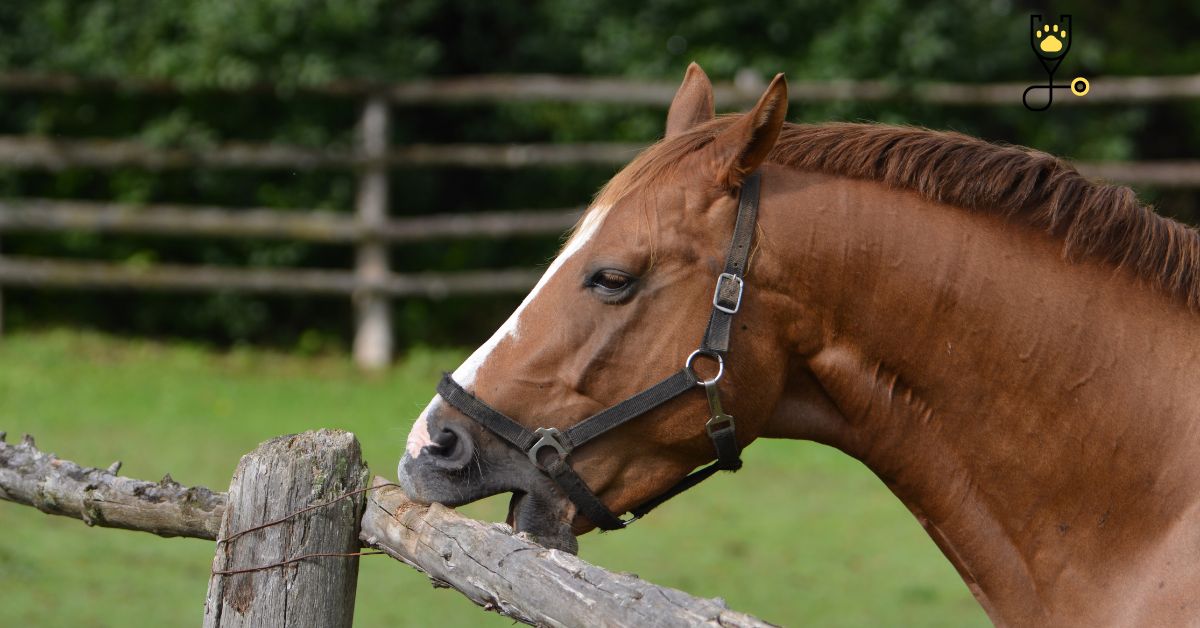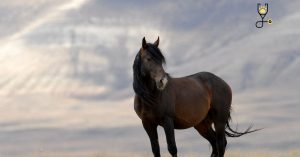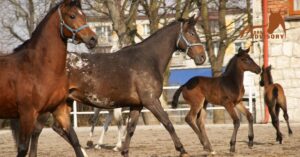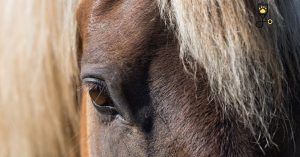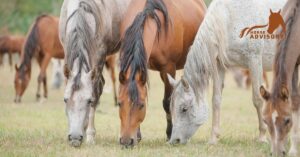Do you have a horse that cribs? If you don’t know what cribbing is, your horse may be one of the many that engage in this behavior. Cribbing is a compulsive act that some horses do when they bite on an object and then suck in the air. It can be quite frustrating for horse owners to deal with, as there are many theories on how to stop it. In this blog post, we’ll discuss everything you need to know about horse cribbers! So if you’re curious about this habit, keep reading!
What is Cribbing?
Cribbing is a stereotypic behavior in horses that involves them biting onto an object, such as the stall door, and then sucking in the air. It can also be referred to as crib-biting or wind-sucking. This habit can become extremely addictive for some horses due to the release of endorphins which act as a reward for the horse. In more severe cases, this habit can lead to physical harm if they are not monitored closely by their owners.
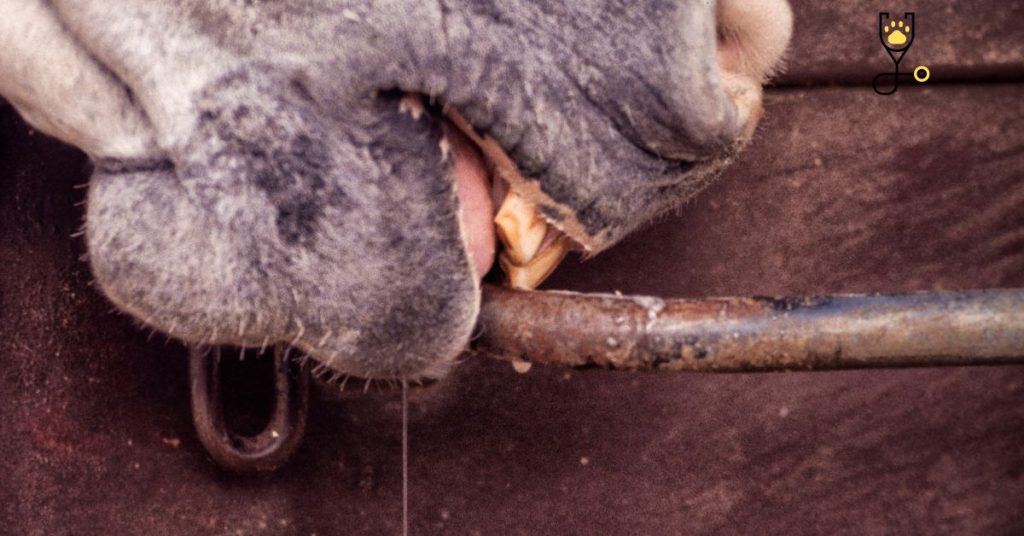
Why do Horses Crib?
Here are 10 common reasons why horses might start to crib:
1. Boredom
Lack of activity and stimulation can lead a horse to engage in the habit.
2. Stress
An anxious or stressed-out horse may resort to cribbing as a form of self-soothing.
3. Genetics
Some believe that this behavior is hereditary, passed down from parents to their offspring.
4. Diet
Horses with an imbalanced diet may be more likely to develop this habit.
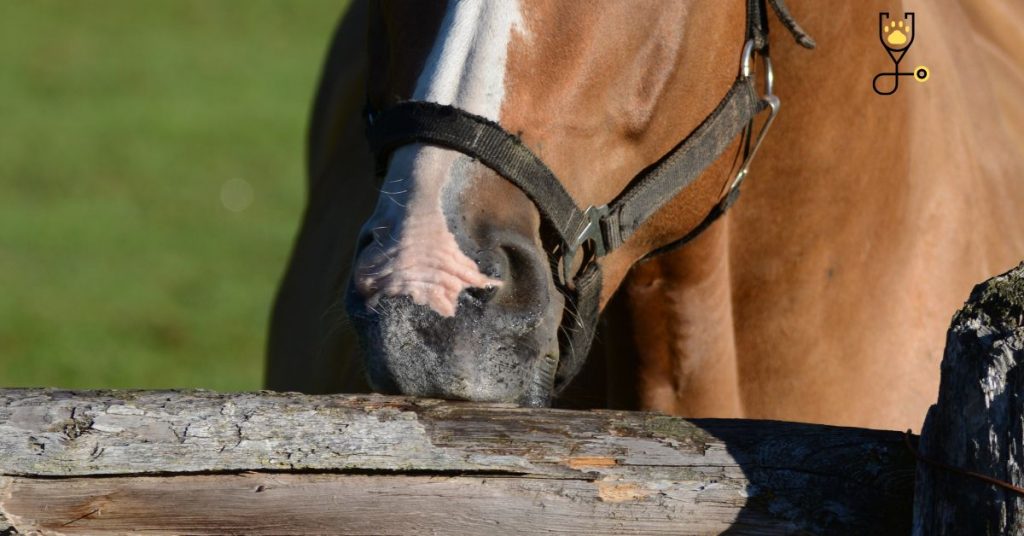
5. Medical conditions (such as ulcers)
If your horse has an underlying medical condition, it could make them more prone to cribbing due to discomfort or pain associated with the issue.
6. Poor management
When horses are not given adequate exercise, turnout, and adequate mental stimulation, they can become frustrated and resort to this habit.
7. Management
Confining a horse in an area or stall that is too small for them can lead to cribbing as a coping mechanism.
8. Social issues
Horses are social animals, so having limited interaction with other horses could cause them to become lonely and start cribbing as a way of self-soothing.
9. Malocclusion (misaligned teeth)
Having poor dental alignment can be uncomfortable and make the horse more likely to engage in this behavior.
10. Sensory issues
Those with vision or hearing deficits may have difficulty understanding their environment and turn to comfort behaviors such as cribbing when feeling overwhelmed by stimuli.
How Can I Stop My Horse from Cribbing?
There are several ways to try and prevent your horse from cribbing. Here are a few tips:
1. Give them plenty of exercises and mental stimulation. Horses need regular exercise and mental stimulation to keep them busy and their minds occupied. This can help reduce stress levels which may lead to this habit.
2. Improve their diet and make sure they have access to fresh, clean water. An imbalanced diet can be a contributing factor in cribbing, so making sure they get the right amount of nutrients is important. Also make sure they have access to an unlimited supply of clean, fresh water throughout the day as dehydration can be a contributing factor too!
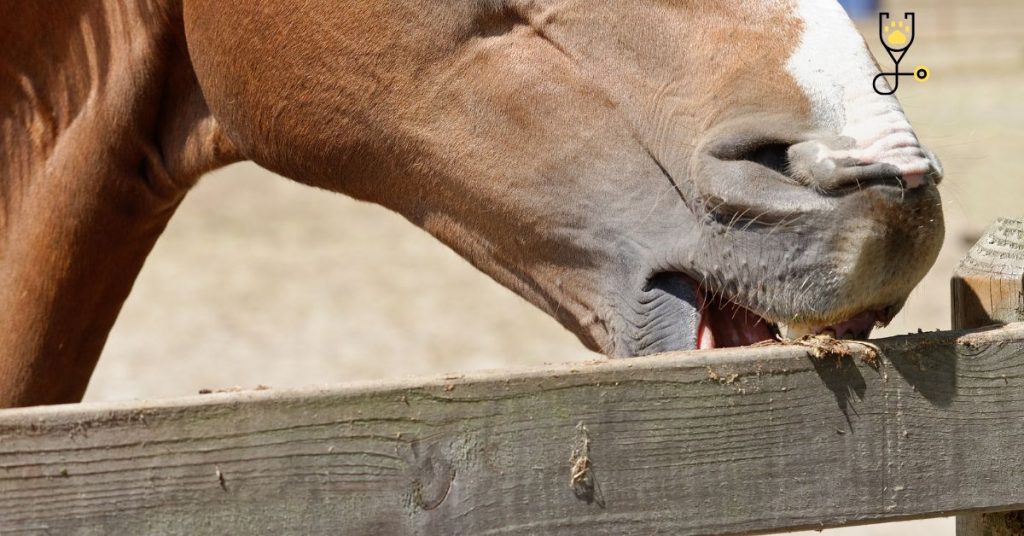
3. Make sure their stall is the right size and has plenty of ventilation. Horses should not be confined in an area that is too small, as this can lead to frustration and stress which could ultimately lead to cribbing.
4. Utilize a grazing muzzle if necessary. If your horse is frequently turning to crib when bored or stressed, using a grazing muzzle may help reduce the amount of time they spend on it.
5. Consult with a vet or equine behaviorist for further advice on how to address this issue if necessary.
What are the Potential Risks of Cribbing?
The biggest risk associated with cribbing is that it can lead to serious physical harm if left unchecked. The constant air intake and release can cause damage to the horse’s respiratory system and teeth, as well as increase their risk of colic, ulcers, choking, and even laryngeal paralysis. In addition, horses who are hooked on this habit may become agitated or aggressive when not allowed to engage in it. For these reasons, it is important that owners take steps to address this behavior before it becomes a bigger issue. With dedication and patience from both you and your horse, cribbing can be managed in most cases!
Conclusion
Cribbing is a complex behavior that can have many different causes, so it’s important to assess your horse’s environment and lifestyle to try and address the issue. With patience, understanding, and dedication, you can help your horse overcome this habit and enjoy more quality time together! Good luck!
Frequently Ask Questions
Q: Can cribbing be stopped once it’s started?
A: Yes, with time, patience, and understanding, you can help your horse overcome this habit. It’s important to assess the environment and lifestyle of your horse to identify any triggers or contributing factors that may be causing them to crib.
Q: What are some ways I can prevent my horse from cribbing?
A: Give them plenty of exercises and mental stimulation, improve their diet and make sure they have access to fresh clean water, make sure their stall is the right size with adequate ventilation, use a grazing muzzle if necessary, and consult with a vet or behaviorist for further advice on how to address this issue.
Q: Is cribbing a sign of distress in horses?
A: Yes, it can be an indication that the horse is experiencing stress or discomfort due to environmental factors such as not having enough space or mental stimulation. It’s important to identify any potential triggers and address them accordingly.
Q: Is cribbing dangerous for horses?
A: In some cases, yes it can be. Cribbing can lead to throat irritation, digestive problems, and even ulcers due to the excessive production of stomach acid. It’s important to consult with a vet if you suspect your horse is exhibiting signs of distress related to this behavior.
Q: Can feeding my horse help reduce cribbing?
A: Yes, having a balanced diet can help address underlying nutritional deficiencies that could be causing your horse to engage in this behavior. It’s important to make sure they have access to an unlimited supply of clean fresh water too. Additionally, providing them with plenty of exercises and mental stimulation can also help reduce their stress levels.
